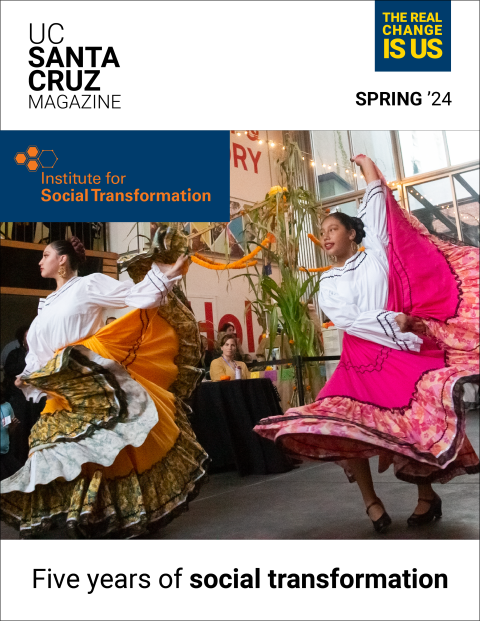Chairman Gould, President Yudof, Regents, Staff and Guests:
Thank you for the opportunity to address you this morning about the budget impact at UC Santa Cruz.
That UC faces daunting challenges and painful choices is all too obvious. The ultimate question is whether we will confront these challenges with incremental actions, or whether we will do it with clarity, creativity, and conviction.
|
|
The Santa Cruz campus has been on a sustained upward trajectory:
- Attracting increasingly diverse, exceptional students and top-notch faculty who are leaders in their fields;
- Achieving research impact, as measured by citations, and when adjusted for size, next only to Harvard, Caltech and MIT;
- Acquiring new highs in both federal and private support;
- Unearthing solutions to vexing challenges to human health and the environment;
- Linking the arts and humanities with engineering to create new fields of study and;
- Leading an innovative public, private partnership as the UC of Silicon Valley.
Our impact - however one measures it - is extraordinary. So is the fiscal crisis we face.
Even after accounting for increased student fees, our operating budget has declined by $50 million since mid-2008. That's more than $3,000 per student.
We cannot sustain cuts like these without making major changes. In particular:
- We've reduced our next frosh class by more than 750 students. If this trend continues, it would effectively shut the door of opportunity to thousands of qualified students at UC Santa Cruz alone.
- We've eliminated 55 faculty positions - 8 percent of budgeted faculty - and dramatically reduced the number of lecturers and teaching assistants. This year we must defer nearly all faculty recruitments.
- There will be fewer courses available. For some students this means longer time to graduation.
- There will be less academic support. We have already cut library hours, slashed book acquisitions, and suspended subscriptions to scholarly journals. There will also be fewer academic advisors.
And, while I reluctantly support the need for pay reductions, these actions make our campus, our university and our state vulnerable to a rapid "brain drain."
Here's the brutal truth: Fewer of California's best and brightest students will enjoy the rich educational opportunities and experiences available to previous generations of UC students.
Some may say, that's too bad. I say, that's a tragedy.
Our research programs are threatened:
- We've eliminated several strong and promising research units - including the STEPS Institute for Innovation in Environmental Research. (Science, Technology, Engineering, Policy, and Society) and the Institute for Science and Global Policy.
- We're looking at seriously reducing research budgets in other units - UCO Lick Observatory is just one example.
Because of these cuts, we have to wonder: How many innovations, how many vaccines and human health breakthroughs, how many ways to protect our planet from climate change, will be delayed or undiscovered?
We've heard the charge that all UC needs to do is reduce administrative operations. Our campus has already streamlined academic support operations and consolidated business functions. We've invested in information technology to increase efficiency.
We've tried to protect the academic enterprise. Two years of cuts have eaten far more deeply into administration, which took two-thirds of cuts compared with teaching or research.
We have eliminated 160 administrative positions from the front-line to the top, including several high-level management jobs.
But as cuts continue, our options have narrowed. Now the cuts are becoming more devastating - fundamentally threatening student access and academic quality.
This is not a one- or two-year problem. The impacts of the cuts made today will have repercussions for years to come. I may be stating the obvious, but it bears repeating: These are not mere budget cuts. California is fundamentally "disinvesting" in higher education.
Our greatest challenge, then, is to prevent these circumstances from derailing our progress. We must - and will - continue to be strategic. Creative. And focused. There is too much at stake to do anything less.
Thank you.


